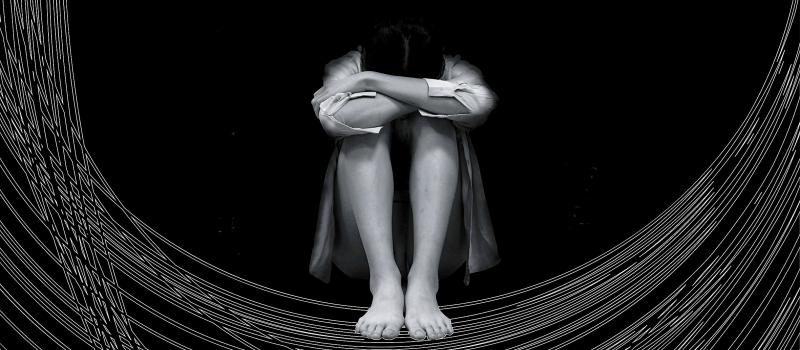While the Grinch — in the form of COVID-19 — might have stolen the Sugar Plum Fairy and flock of swans that many ballet lovers were looking forward to seeing in Taipei and Kaohsiung this weekend and next, there are still some performances that contemporary dance fans might find enjoyable.
The Moscow Classical Ballet’s opening night at the National Theater in Taipei on Wednesday was canceled after test results for four members came back positive for COVID-19, despite having passed tests prior to their flight to Taipei. Last night’s show and the rest of the 10 performances were scrapped yesterday after another round of testing returned positive results for more members of the troupe.
The tour promoter, udnFunLife, yesterday said that tickets for all the shows would be refunded in full, either online, by mail or in-person, and there was no deadline for requesting a refund. However, it pleaded for patience among those calling its Mandarin-only customer service line (02-7721-6958, extension #2), which is open daily from 9am to 6pm, noting that it has been deluged with calls.

Photo courtesy of Liu Ren-hao
There is a link on its Moscow Classical Ballet page with refund details (tickets.udnfunlife.com/application/UTK01/UTK0101_051.aspx?NEWS=N0Y339CA), although the information is only in Mandarin.
In-person refund requests for the National Theater shows would be processed between 6pm and 8pm tonight through Sunday for the evening shows and 1pm to 3pm for this weekend’s matinees at the ground floor main entrance to the theater on Aiguo E Road.
However, there is no word yet whether similar arrangements would be made next weekend at the National Kaohsiung Center for the Arts (Weiwuying).

Photo courtesy of Moscow Classical Ballet
Meanwhile, Taiwanese choreographers and dancers will be performing this weekend, with Solar Site Dance Company (索拉舞蹈空間) giving two shows tomorrow of A Drop in the Ocean (太倉一粟) at the Tainan Municipal Cultural Center, and matinees tomorrow and Sunday of the Chiayi New Choreography (嘉義新舞風) project at the Chiayi Performing Arts Center.
Both productions will make their way to the Umay Theater at Taipei’s Huashan 1914 Creative Park (華山1914文創園區), with the Chiayi show on Saturday and Sunday next week and Solar Site giving three performances starting on Jan. 22.
The Chiayi New Choreography project, launched to provide a platform for southern-born choreographers and dancers, is now in its ninth year and this year’s production is titled Colorful Life (絢光).
It features works by Tien Hsiao-tzu (田孝慈), Lin Junyu (林俊余), Hsu Wei-po (許瑋博) and Gu Shen-chieh (古盛傑), who are all freelance choreographers. Lin and Hsu both had works featured in last weekend’s Stray Birds Platform (漂鳥舞蹈平台) produced by Hung Dance (翃舞製作) at the Taiwan Traditional Theatre Center’s Experimental Theater in Taipei.
The four choreographers were challenged to explore waves of light and color in their works.
Tickets for this weekend’s shows are NT$400, while next weekend’s are NT$600 and are available online at www.artsticket.com or convenience store kiosks.
Kaohsiung-based Solar Site was founded by Pan Ta-chien (潘大謙), who has focused on works inspired by contemporary social issues and the problems created by a globalized, commercialized world.
A Drop in the Ocean explores the fate of individuals in an increasingly technologically dominated world, and was partly inspired by Chinese artist Ai Weiwei’s (艾未未) 2010 installation, Sunflower Seeds.
The idea is that people are alienated from contemporary society, but cannot escape.
Pan choreographed the work in collaboration with his three dancers, and designed the staging.
Tickets for tomorrow’s matinee and evening shows are NT$500, the same price as tickets for its Umay Theater Jan. 22 to Jan. 24 run, and can be purchased online at www.artsticket.com or convenience store kiosks.

In the next few months tough decisions will need to be made by the Taiwan People’s Party (TPP) and their pan-blue allies in the Chinese Nationalist Party (KMT). It will reveal just how real their alliance is with actual power at stake. Party founder Ko Wen-je (柯文哲) faced these tough questions, which we explored in part one of this series, “Ko Wen-je, the KMT’s prickly ally,” (Aug. 16, page 12). Ko was open to cooperation, but on his terms. He openly fretted about being “swallowed up” by the KMT, and was keenly aware of the experience of the People’s First Party

Aug. 25 to Aug. 31 Although Mr. Lin (林) had been married to his Japanese wife for a decade, their union was never legally recognized — and even their daughter was officially deemed illegitimate. During the first half of Japanese rule in Taiwan, only marriages between Japanese men and Taiwanese women were valid, unless the Taiwanese husband formally joined a Japanese household. In 1920, Lin took his frustrations directly to the Ministry of Home Affairs: “Since Japan took possession of Taiwan, we have obeyed the government’s directives and committed ourselves to breaking old Qing-era customs. Yet ... our marriages remain unrecognized,

Not long into Mistress Dispeller, a quietly jaw-dropping new documentary from director Elizabeth Lo, the film’s eponymous character lays out her thesis for ridding marriages of troublesome extra lovers. “When someone becomes a mistress,” she says, “it’s because they feel they don’t deserve complete love. She’s the one who needs our help the most.” Wang Zhenxi, a mistress dispeller based in north-central China’s Henan province, is one of a growing number of self-styled professionals who earn a living by intervening in people’s marriages — to “dispel” them of intruders. “I was looking for a love story set in China,” says Lo,

Standing on top of a small mountain, Kim Seung-ho gazes out over an expanse of paddy fields glowing in their autumn gold, the ripening grains swaying gently in the wind. In the distance, North Korea stretches beyond the horizon. “It’s so peaceful,” says the director of the DMZ Ecology Research Institute. “Over there, it used to be an artillery range, but since they stopped firing, the nature has become so beautiful.” The land before him is the demilitarized zone, or DMZ, a strip of land that runs across the Korean peninsula, dividing North and South Korea roughly along the 38th parallel north. This